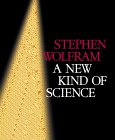Timothy Bovee, editor.
www.daypoems.net

D
a
y
P
o
e
m
s
*
D
a
y
P
o
e
m
s
*
D
a
y
P
o
e
m
s
*
D
a
y
P
o
e
m
s
*
D
a
y
P
o
e
m
s
*
D
a
y
P
o
e
m
s

|
Gore Vidal recently wrapped up (he says!) his not-so-fictional exploration of the history of the American republic, with The Golden Age. Vidal in a way led me to journalism. He taught me that in politics and government, nothing is every what it seems. That seemed pretty interesting, so I became a journalist. |
I first encountered Vidal in high school, though The City and the Pillar, a very personal work.
I took the publication of "Golden Age" as an opportunity to read through all seven books in the series. The big question with Vidal's American historicals is the order in which they should be read. The first-written, Washington, D.C., and the last-written both cover the same era and share many of the same characters. 1876 came before Lincoln. To complicate matters, many of the books have backreferences to others in the series.
Taking all of that into account, here is the order I recommend:
Begin with Lincoln, the birth of the imperial state, and continue through the tale of the engaging Carolyn Sanford in Empire and Hollywood, flashback to Burr and 1876, and then wrap it up with Golden Age and a coda in Washington, D.C., which ends on a typically hopeless Vidalian note.
Prior passions...

|
Ward's words and Rockman's art explore the world of future evolution on a planet entirely molded by humans. Main astonishments: The big mammal die-out is at its end and there's nothing we can do about it, and global cooling is dangerous; global warming is probably good. The best book I've read so far this year. Interview with Ira Flatow on NPR's Science Friday. |
 |
I'm on page 303 and have to yet to decide whether Wolfram is a genius or a mad poet of science. The Wired article by Steven Levy that tipped me to Wolfram's book. |
Two good books about verse
The Sounds of Poetry : A Brief Guide, by
Robert Pinsky (right, the NewsHour occasional guest), all about the music
of poetry in English.
The Making of a Poem: A Norton Anthology of Poetic Forms, by
Mark Strand and Evan Boland. A wonderful discussion of classic poetic forms,
with many examples.
A Theory of Everything, by Ken Wilbur. Get
inside the minds of Osama bin Laden, John Ashcroft and the Dali Lama.
(What? You don't want to go there?)
The End of Time: The Next Revolution in Physics, by Julian Barbour. Time isn't what it seems.
